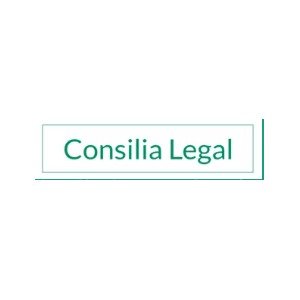Best Hiring & Firing Lawyers in Leeds
Share your needs with us, get contacted by law firms.
Free. Takes 2 min.
List of the best lawyers in Leeds, United Kingdom
About Hiring & Firing Law in Leeds, United Kingdom:
Hiring and firing laws in Leeds fall within the wider umbrella of UK employment law. This area encompasses diverse aspects such as recruitment, contracts, termination, discrimination, redundancy, and unfair dismissal. These laws are intended to protect both employers and employees, ensuring a fair, equitable, and safe working environment. In Leeds, as in the rest of the UK, it's vital for companies and individual employees to fully understand these laws, as non-compliance can lead to serious legal issues.
Why You May Need a Lawyer:
There are several situations where it is advisable to engage a lawyer. As an employer, a lawyer can help draft hiring contracts that protect both your interests and the rights of your employees, ensure your firing processes are lawful, and can defend you against tribunals or potential litigation. If you're an employee, legal counsel can protect your rights when starting a new job, and can also help if you have been unfairly dismissed, discriminated against, or if you face redundancy.
Local Laws Overview:
UK employment laws applicable to Leeds cover various aspects. These include laws pertaining to contracts, where a legally-binding agreement is formed between the employer and the employee. There are also laws around unfair and wrongful dismissals, which protect employees from dismissals without a fair reason, or without the proper procedures being followed. Anti-discrimination laws prohibit unfair treatment on the basis of age, disability, gender, marital status, pregnancy or maternity, race, religion or belief, and sexual orientation. Redundancy regulations require suitable notice and may require redundancy payments, depending on the specific circumstances.
Frequently Asked Questions:
What is considered unfair dismissal?
Unfair dismissal is when an employee is dismissed from their job in a way that is against UK employment law. This may include being fired without a just cause, or without following correct procedure.
What is wrongful dismissal?
Wrongful dismissal occurs when an employer breaches the terms of an employee's contract during the dismissal process, such as not giving proper notice.
Can an employer in Leeds fire an employee without notice?
No. In most cases, UK law requires employers to provide a notice period. This can be outlined in the contract or dictated by statutory minimum periods.
What is constructive dismissal?
Constructive dismissal is when an employee is forced to resign due to the behaviour of the employer. In a claim of this nature, the employee would need to prove their employer's conduct amounted to a serious breach of contract.
What is meant by redundancy?
Redundancy is when an employer reduces their workforce because a job or jobs are no longer required. There are specific rules and procedures that employers must follow when making employees redundant.
Additional Resources:
For more information on Leeds' hiring and firing laws, you may want to explore resources like the UK government's official website, guides from Citizen's Advice, or materials from the ACAS (Advisory, Conciliation and Arbitration Service). These resources provide detailed advice on UK employment law. Regular interaction with HR professionals or Lawyers can also be helpful.
Next Steps:
If you believe you need legal assistance regarding hiring and firing in Leeds, seek advice from a legal professional who specialises in employment law. They can guide you, whether you are an employer or an employee, through the complexities of the law and defend your interests. Make sure to gather and organise all relevant documents and evidence about your situation, which will aid your lawyer in providing the best advice possible.
Lawzana helps you find the best lawyers and law firms in Leeds through a curated and pre-screened list of qualified legal professionals. Our platform offers rankings and detailed profiles of attorneys and law firms, allowing you to compare based on practice areas, including Hiring & Firing, experience, and client feedback.
Each profile includes a description of the firm's areas of practice, client reviews, team members and partners, year of establishment, spoken languages, office locations, contact information, social media presence, and any published articles or resources. Most firms on our platform speak English and are experienced in both local and international legal matters.
Get a quote from top-rated law firms in Leeds, United Kingdom — quickly, securely, and without unnecessary hassle.
Disclaimer:
The information provided on this page is for general informational purposes only and does not constitute legal advice. While we strive to ensure the accuracy and relevance of the content, legal information may change over time, and interpretations of the law can vary. You should always consult with a qualified legal professional for advice specific to your situation.
We disclaim all liability for actions taken or not taken based on the content of this page. If you believe any information is incorrect or outdated, please contact us, and we will review and update it where appropriate.













